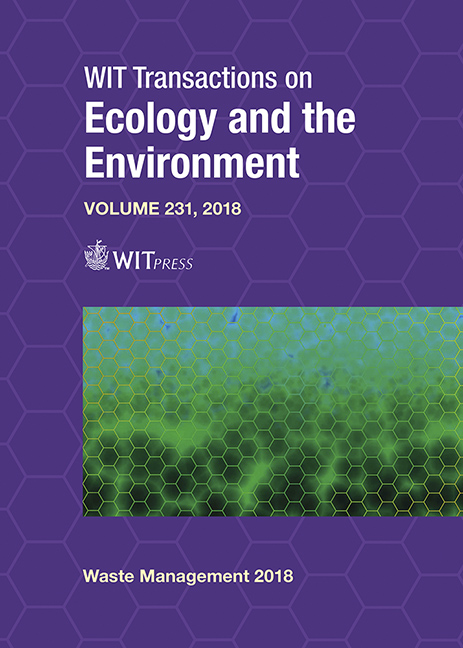CROWDING-OUT EFFECT OF FINANCIAL INCENTIVES FOR HOUSEHOLDS TO RECYCLE WASTE
Price
Free (open access)
Transaction
Volume
231
Pages
11
Page Range
269 - 279
Published
2019
Paper DOI
10.2495/WM180251
Copyright
WIT Press
Author(s)
JIRI REMR
Abstract
Willingness of individuals to recycle their waste is driven by a wide range of factors. These may be distinguished as intrinsic, for example perceived importance of recycling, and extrinsic, e.g. commandand- control interventions or financial incentives in a form of landfill taxes, deposits, charges, and fees. In order to increase the participation rate, specific policy measures and interventions are introduced. Some of these interventions, like educational campaigns, are focused on intrinsic motivation of residents, whereas some other measures are using financial stimuli to affect people’s recycling behavior directly. In this respect, the crowding-out effect might occur when financial incentives might reduce the effect of intrinsic factors. This paper reports on responsiveness of residents to the direct and indirect incentives. The purpose of this analysis was to test the crowding-out hypothesis supposing that direct incentives are replacing the intrinsic motivation to recycle. The presented data is based on a nationwide survey (n=1.579) that was conducted in the Czech Republic during 2017 and confirms the hypothesis for a large part of the population (50%). However, it was also found that one fifth of the sample is responsive only to the direct incentives. Therefore, the crowding-out effect is not confirmed for a segment of the population. It seems that direct and indirect incentives may not be mutually exclusive. For some individuals the direct and indirect measures might support each other and together may increase positive impacts on recycling behavior. It is also highly recommended to consider the context within which the given measures are to be implemented. Under certain circumstances, such as high intrinsic motivation of residents, the launch of direct measures may not be reasonable.
Keywords
recycling, crowding-out effect, attitude, behavioral change, intrinsic motivation, waste management, direct incentives





